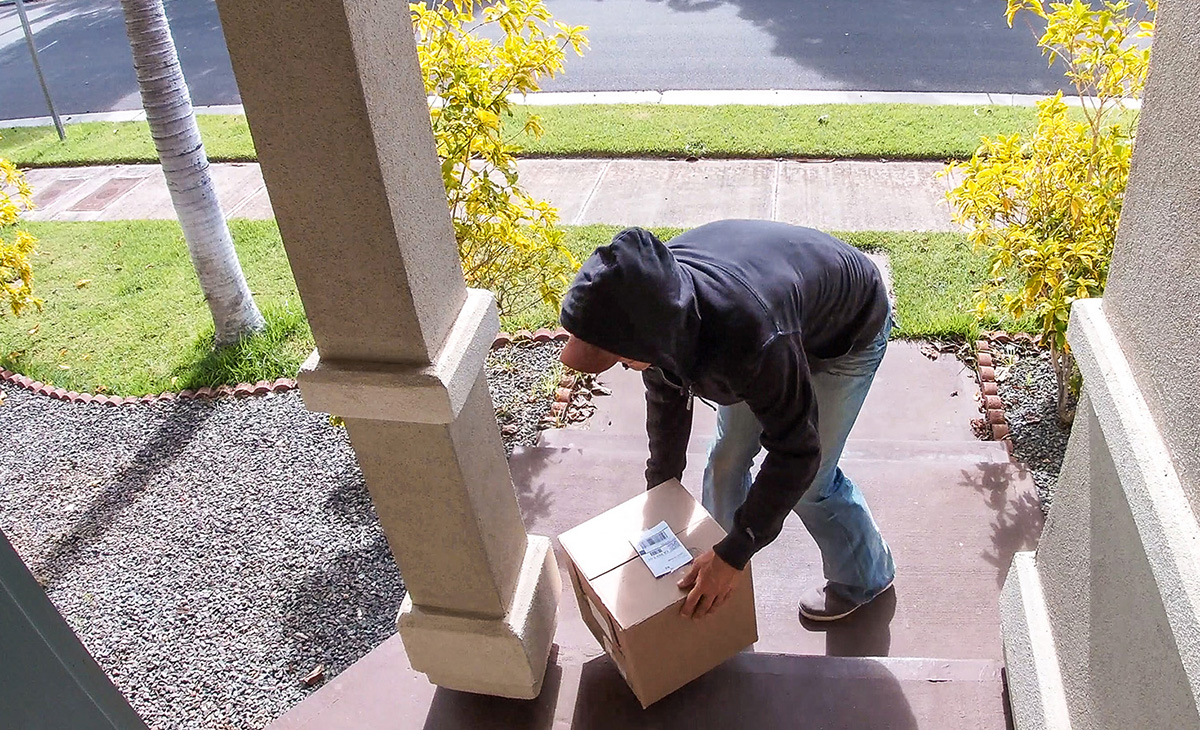Article by Gwen Jones, Department of Family Services
(Posted 2025 November)


The holiday season is a time for spreading joy and generosity. Unfortunately, it’s also a popular time of year for scammers to exploit your goodwill and steal your money, gifts, or personal information. Staying alert and informed can help you protect yourself from falling victim to these schemes.
Gift Card Scams
Gift cards are a popular and convenient gift option, but they can also be a target for scammers. Some scammers tamper with gift cards on display racks by removing the film strip, recording the card and PIN numbers, resealing the packaging, and placing the card back on the shelf. Once the card is purchased and activated, their computer program alerts them, allowing them to drain the card’s funds – leaving you with a worthless gift card.
How to protect yourself:
- Buy gift cards from secure locations, such as behind the counter at a store.
- Opt to send e-gift cards directly to recipients through reputable websites.
Counterfeit Goods Scams
While browsing online or scrolling social media, you might come across luxury items or brand-name goods at unbelievably low prices. These deals are often scams. In some cases, the seller takes your money but never delivers the item. In others, they send counterfeit, low-quality versions of the advertised products.
Red flags to watch for:
- Prices that seem too good to be true.
- Requests for unusual payment methods like wire transfers, gift cards, or cryptocurrency.
- Limited information about the seller, such as no return policy or lack of contact details.
How to avoid this scam:
- Shop only at trusted retailers and check customer reviews.
- Ensure the seller has clear refund and return policies.
- If you think you’ve been scammed, report it to the FTC at ReportFraud.ftc.gov or call 1-877-382-4357. You can also file a complaint with the Internet Crime Complaint Center (IC3) at ic3.gov. If you paid by credit card, notify your credit card company to dispute the charges.
Delivery Scams
Delivery scams are common during the holidays. Scammers send phishing emails or text messages posing as trusted delivery services like UPS, FedEx, or the U.S. Postal Service. These fraudulent messages usually claim you have an incoming or missed delivery and include links designed to infect your device with malware or steal your personal information.
How to protect yourself:
- Don’t click on links in suspicious emails or texts.
- Double-check delivery notifications by going directly to the official website of the delivery service and entering your tracking information.
Charitable Giving Scams
The holidays inspire charitable giving, but scammers take advantage of this goodwill by creating fake charities to steal your donations. They may contact you through unsolicited phone calls, emails, or posts on social media.
How to stay safe:
- Don’t answer calls from unknown numbers or click on links in unsolicited emails.
- Research a charity before donating to ensure it’s legitimate. You can verify charities at websites like Give.org, CharityWatch.org, or CharityNavigator.org.
- To confirm that your donation is tax-deductible, search for the organization through the IRS’s tax-exempt organization search at irs.gov/charities-non-profits/tax-exempt-organization-search.
- Only donate using credit cards or checks. Charities that ask for payment via wire transfers, gift cards, or cryptocurrency are likely scams.
If you suspect a scam:
- Report it to the FTC at ReportFraud.ftc.gov.
- File a complaint with your state’s charity regulator. In Virginia, contact the Office of Charitable and Regulatory Programs (OCRP) at vdacs.virginia.gov/food-charitable-solicitation.shtml.
Package Theft Prevention
Package thefts spike during the holiday season, although they’re not technically scams. Taking steps to secure your deliveries can prevent valuables from being stolen off your porch.
Tips to protect your packages:
- Choose to have packages delivered to a secure drop box or locker when possible.
- Request a signature for high-value items.
- Install a doorbell camera to monitor deliveries. It can notify you when packages arrive so you can bring them inside quickly or ask a neighbor to retrieve them if you’re away.
By following these tips, you can make the holiday season safer and more enjoyable for yourself and your loved ones.
Stay on top of scams and protect yourself. Visit the Silver Shield Anti-Scam Program: FairfaxCounty.gov/familyservices/older-adults/fairfax-county-silver-shield-anti-scam-campaign.
This article is part of the Golden Gazette monthly newsletter which covers a variety of topics and community news concerning older adults and caregivers in Fairfax County. Are you new to the Golden Gazette? Don’t miss out on future newsletters! Subscribe to get the electronic or free printed version mailed to you. Have a suggestion for a topic? Share it in an email or call 703-324-GOLD (4653).

